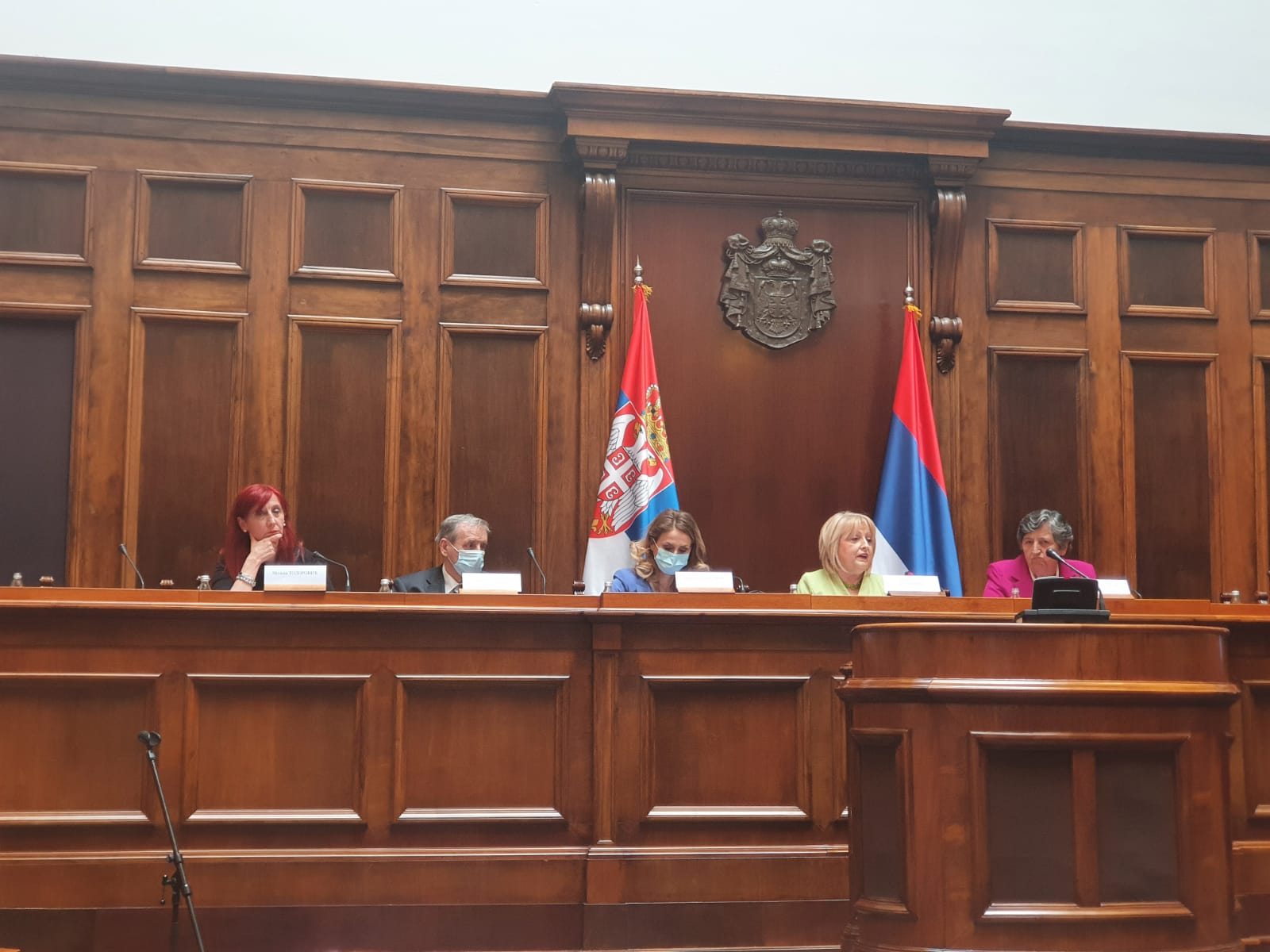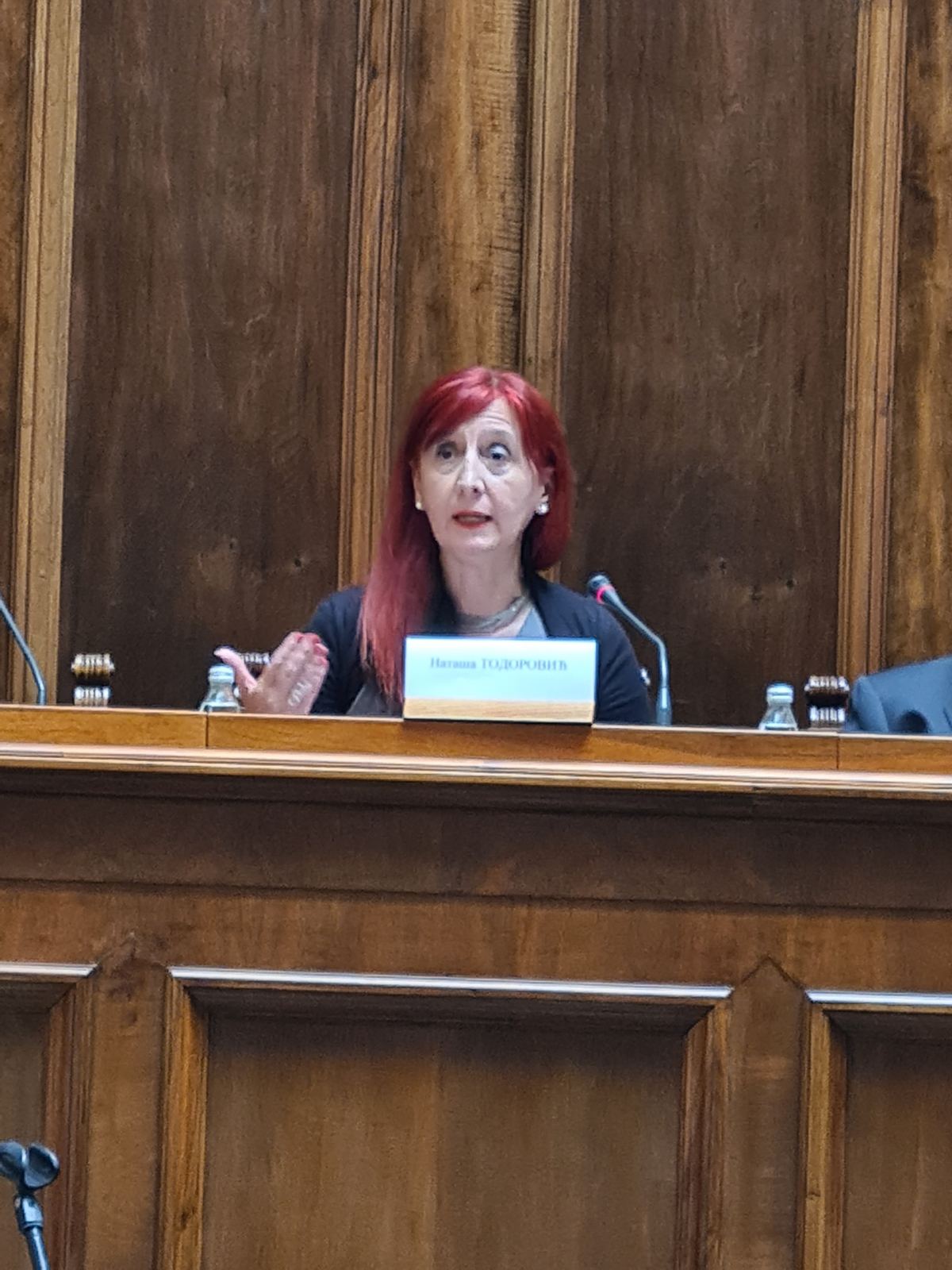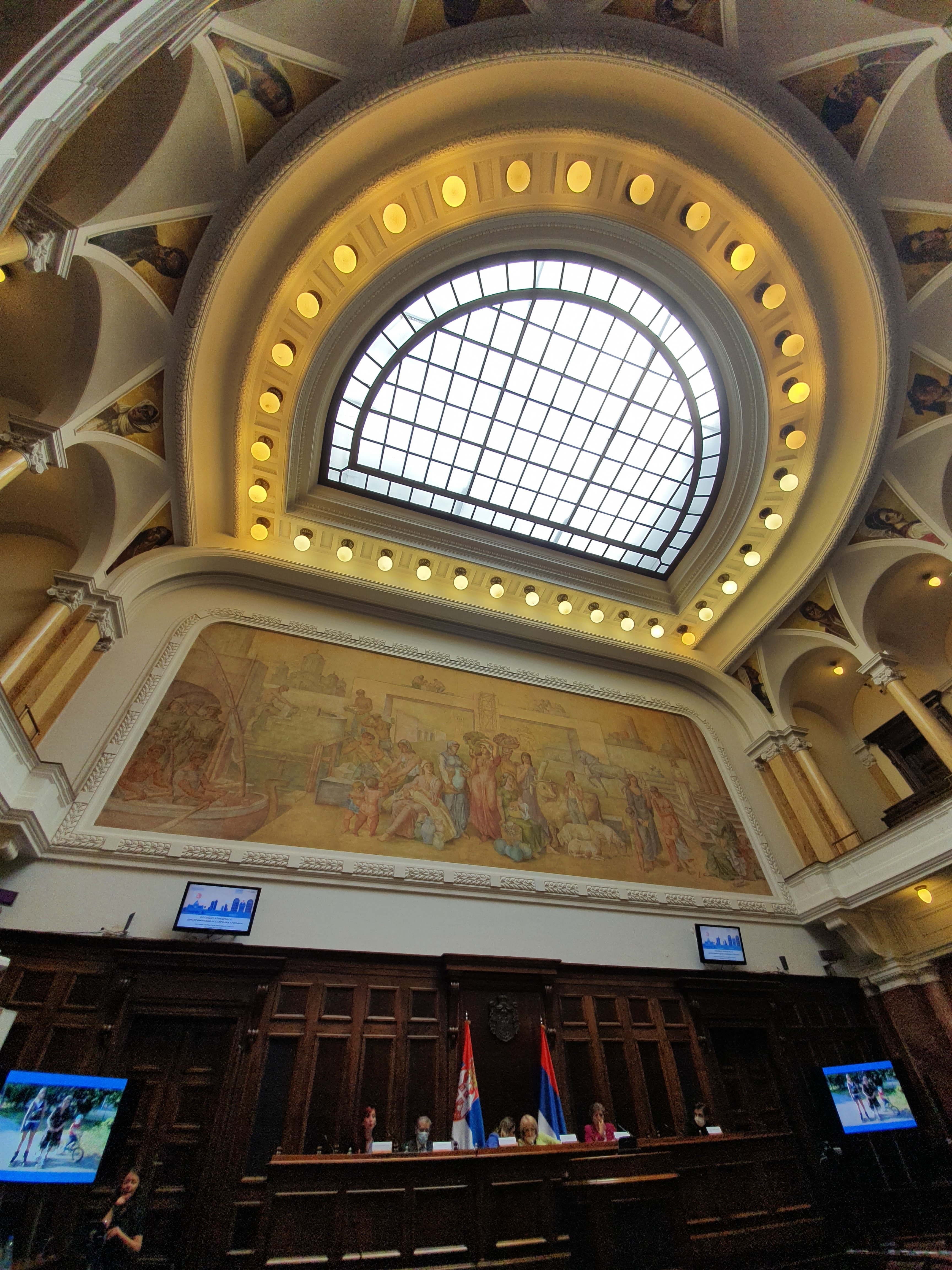- news
- representative of the red cross of serbia participated in the presentation of the special report on discrimination against older persons in the serbian national assembly
Representative of the Red Cross of Serbia participated in the presentation of the Special Report on Discrimination against Older Persons in the Serbian National Assembly

Natasa Todorovic of the Red Cross of Serbia participated in the public hearing in the National Assembly of the Republic of Serbia on May 14, 2021, when the Special Report on Discrimination against older persons was presented as prepared by the team of the Commissioner for the Protection of Equality and with the support of the United Nations Population Fund (UNFPA). Ivica Dacic, Chairperson of the National Assembly, and Brankica Jankovic, Commissioner for the Protection of Equality, organized a public hearing on this occasion, which included the organization of three panels. The first panel dealt with cross-sectoral cooperation of state bodies, the second with the role of the civil sector in working to improve the position of older persons, while the third presented some examples of good practice.
Ivica Dacic pointed out that the image painted in the report on discrimination against older persons is not something to be proud of, especially for a community like ours, which likes to speak about its solidarity and care for older members of the society. Brankica Jankovic explained that ageism could be the widest spread form of discrimination in the 21st century, as racism used to be, and that she was once criticized for insisting on the topic of ageing, even though age is a multiplier of discrimination.
Sem Fabrizi, Head of the EU Delegation to Serbia, emphasized the importance of this topic and reminded that older persons are one of the most vulnerable groups in the society, but also a source of collective knowledge, talent, experience and wisdom. Françoise Jacob, UN Resident Representative in Serbia, spoke about the work on the 2030 Agenda and that the United Nations General Assembly declared the period from 2021 to 2030 a decade of healthy aging, reminding everyone of the UN stance that the world is not sufficiently prepared to respond to needs and the rights of older persons, despite the fact that the aging of the population is predictable and despite the fact that it is happening at an accelerated pace.
The second panel, moderated by Slavica Djukić Dejanovic, special advisor to the Prime Minister of the Republic of Serbia, was attended by: Andreja Savic, the Third Age Movement; Natasa Todorovic, Red Cross of Serbia; Nadezda Sataric, Amity – Power of Friendship and Uros Savic Kain, Umbrella Organization of Serbian Youth KOMS.
Natasa Todorovic, the Red Cross of Serbia expert associate and coordinator of the HumanaS network, and INPEA representative for Europe, said that the COVID-19 crisis was a sort of a magnifying glass that helps us better see the shortcomings in access to human rights for older persons. Achieving the goals of the Agenda 2030 is not possible without the involvement of civil society organizations and older persons themselves. There are five main roles in Agenda 2030 in which the essential contribution of civil society organizations to achieving the goals of sustainable development:
1) Promotion, awareness raising, information and advocacy for change. Changing the image of older persons as passive recipients of assistance to older persons as developmental factors that contribute to their families, communities and the society.
2) Civil society organizations are the voice of the poorest and most vulnerable among us: functionally dependent, older persons with diagnosed dementia, older Roma persons, illiterate persons, older persons in rural areas, older persons residing in institutions. The leave no one behind principle requires that global development must have positive effects for those groups at risk and civil society organizations can help here by communicating their needs and arguments to decision-makers at all levels.
3) Monitoring and supporting the implementation of the Agenda 2030 through the presence of civil society organizations at all levels is valuable. We are proud that CSOs have influenced language change and that we have made clear progress towards the Millennium Development Goals, and the civil sector is active globally, for example through advocating for a new UN Convention on the Rights of Older Persons.
4) Providing services and thus increasing the capacity of institutions and society, but also providing specialized services where civil society organizations can have an advantage over the private sector due to their efficiency and reputation in the community but also providing innovative services such as education of informal carers and innovative services in local community.
5) Data collection and monitoring of the implementation of the Agenda 2030. Civil society organizations can be a vital link in the chain of collecting information, which is again crucial in the implementation process, measuring results and correcting the implementation approach at different levels.
She also pointed out that: "we must perceive the current global crisis as a wake-up call. Human rights are worth only as much as we can rely on them in times of crisis and turmoil. Protecting older persons, without ever giving them a seat at the table, helps no one. When it comes to human rights, leaving no one behind means making everyone share both responsibility and benefits. So, the way forward, or at least the first step on that path, is the preparation of a new United Nations Convention on the Human Rights of older persons. If we really want to protect the human rights of older people at all levels and in all environments, we must start from the bottom and listen to them, but also from the top and give a clear statement that the whole world will hear. ”
Link for the whole statement: https://www.youtube.com/watch?v=rtNzwL8cohU


